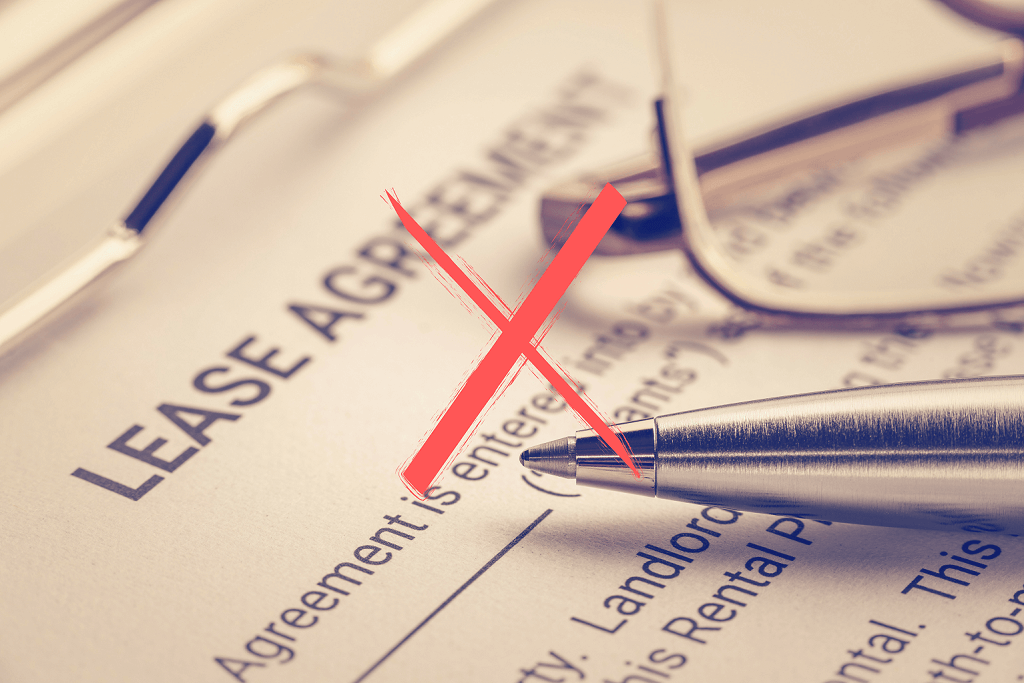Business Travel
|
Jun 11, 2019
All You Need to Know About Breaking a Lease
Rules are meant to be broken, they say, and the same could be said about leases. Signing a lease on a home or apartment is an exciting endeavor, but also a significant responsibility. As a legally binding contract, signing it means you’re responsible for paying the rent every month for a period of time. But what happens if life gets in the way and you need to break the lease? Maybe you need to relocate for a new job, your financial situation has changed, you’ve had a family emergency or things just didn’t go the way you planned.
Breaking a lease isn’t impossible, but it could end up costing you significant time and money. If you’re ready to face that possibility and have decided it’s a must-do, here are our tips for breaking a lease without breaking your soul.
How to break a lease
The first step in attempting to break your lease is notifying your landlord. Do this in writing, either via email or snail mail. Avoid doing it over the phone, as you’ll be without a paper trail. Be sure to save all physical or digital correspondence.
In your letter, explain why you’re seeking to break the lease. The more honest you are, the better, as there’s a chance your landlord is sympathetic to your situation and acts reasonably. Also ask under what terms they’d be willing to terminate the lease and if there’s anything you can do to help (more on this under “Ways to mitigate”).
What to expect
If your landlord agrees to break your lease, it’s usually with some financial or logistical strings attached. Their first priority is avoiding lost rent by having an empty unit on the market. With that in mind, the following caveats are within the realm of possibility.
Financial
The landlord may require you to pay the rent for the remaining months on your lease, even if that equates to several months and several thousands of dollars. Otherwise, they may ask for one to three months’ rent, with the majority asking for two, according to Brick Underground. Be sure to get the agreed upon amount in writing.
Logistical
When breaking a lease, it’s your responsibility to re-rent the apartment, not the landlord’s. Therefore, your landlord may ask you to find a qualified tenant to take your place. This is known as assigning the lease to another tenant, not to be confused with subletting (which we will get to soon). The landlord may also ask for things like regular access to the apartment for inspections, repairs, viewings and other tasks necessary to finding a new tenant.
UPDATE: If you’re breaking a lease in New York City, rent reforms passed in June 2019 ruled that landlords can’t sit on a vacant apartment if a tenant breaks the lease. Find out more here.
Ways to mitigate
There are ways you can help mitigate the situation to make your lease break less painful and costly, such as:
Sublet
Your landlord may allow you to sublet your apartment for the remaining months on your lease. This means someone else lives in the apartment in your place, but your name remains on the lease and you’re ultimately responsible for the rent. It’s also possible that your landlord won’t allow you to sublet, and depending on state law, that may be their right.
If you decide to sublet, be sure to take the proper steps to protect yourself legally and financially.
Move to an in-network apartment
If your apartment’s management company has other properties in its network, find out if they have any availabilities in the city you’re moving to. If yes, they may allow you to transfer your lease or break your current one without penalty.
Have your new employer help out
If you’re relocating for a new job, see if your new employer can help you break your lease as part of your relocation package. That can mean covering the financial penalty completely. If you receive a lump sum for moving expenses, consider using it to cover some or all of the cost to break your lease.
Conclusion
In situations like these, always expect the best but prepare for the worst. In the case of breaking a lease, that means protecting yourself legally, being ready to pay the cost financially and working with your landlord as much as possible to avoid conflict. Chances are you’re not the first person they’ve ever broken a lease with, so at most it’s an unpleasant but not impossible task.
Need a temporary apartment after your lease break?
Avoid signing a new lease right away by staying in a short-term furnished apartment. It’s the perfect solution to being between leases without staying in a pricey hotel – plus WiFi, housekeeping and utilities are included. Search our temporary apartments now.
Further reading



Furnished Quarters is the premier supplier of short-term housing and an accredited LGBTQ+ diverse, privately owned and operated company.
© 2025 Furnished Quarters, LLC. All Rights Reserved.



